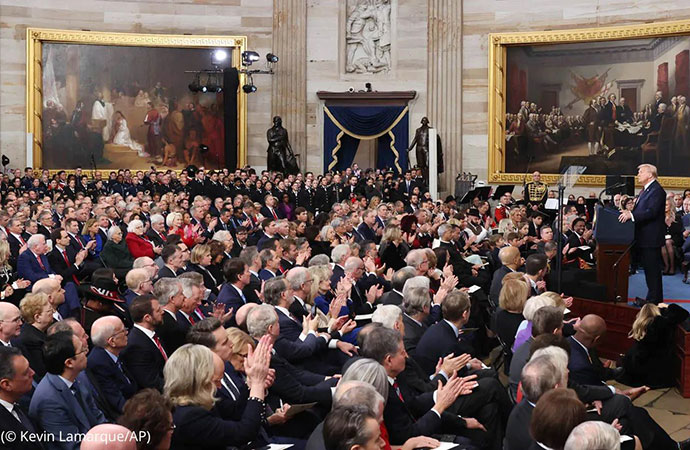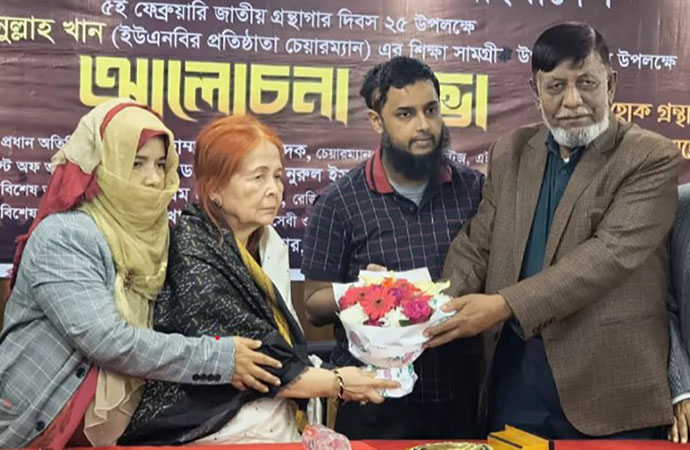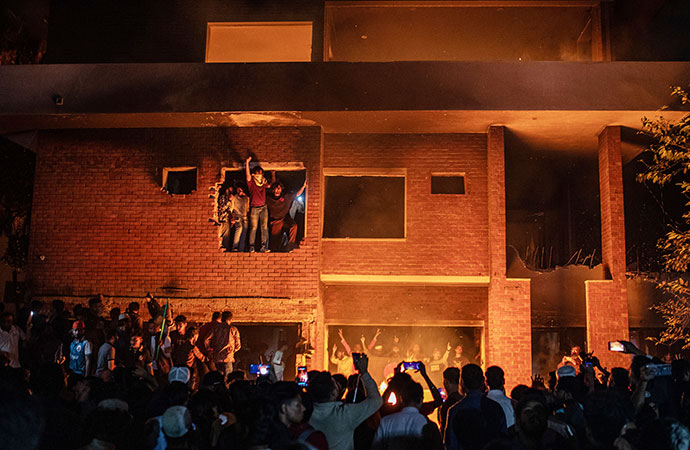Column

Donald Trump's second coming with an inauguration inside the regal rotunda of the U.S. capitol is heralding the return of an imperialist American presidency. In his inauguration speech, Trump invoked 'Manifest Destiny' which was used to justify U.S. territorial expansion across North America in the 19th century. Trump announced the renaming of North America's highest mountain Denali as Mount McKinley in honor of Republican president William McKinley who added Hawaii and Puerto Rico as U.S. territories and laid the groundwork for the construction of the Panama Canal. Trump announced that he would "take back" the canal while extending the concept of Manifest Destiny into the final frontier of space by aiming to land man on Mars. Prior to his inauguration, Trump hinted that he would take control of Greenland, which is the world's largest island, and end the rule of the Danish crown (the substantial U.S. military presence in Greenland already gives Washington a degree of de facto control).
His first meeting with a foreign leader was with Benjamin Netanyahu of Israel. Despite his historical opposition to U.S. military involvement in Middle East wars (including his opposition to the Iraq War during the Bush presidency), Trump announced his intentions to "own" the Gaza Strip. He later clarified on his Truth Social platform that "no soldiers by the U.S. would be needed!". His administration also announced the repatriation of illegal migrants. Trump's apparent irredentism and policy of repatriation can provide important lessons for Bangladesh. Forced deportation is a crime under international law. According to Tom Dannenbaum of the Fletcher School of Law and Diplomacy, "many have correctly noted that forced transfer or deportation is a war crime and crime against humanity. On "voluntariness," it bears emphasizing that the forced nature of transfer can be established where the perpetrators take advantage of a coercive environment to preclude genuine choice". Trump's success, or lack thereof, with repatriation and deportation can potentially influence Bangladesh's Rohingya repatriation policy.
Bangladesh's first significant engagement with Donald Trump in his second term came during the National Prayer Breakfast on 6 February 2025. The Bangladesh Nationalist Party was invited to the event and was represented by its Secretary General Mirza Fakhrul Islam Alamgir, Standing Committee member Amir Khasru Mahmud Chowdhury, and Zaima Rahman, the granddaughter of Khaleda Zia. Others in attendance included the Pakistani politician Bilawal Bhutto Zardari, a former foreign minister and the son of Benazir Bhutto. Previously, Bangladesh President H. M. Ershad was invited to the National Prayer Breakfast in 1989 which led to increased engagement with the administration of George H. W. Bush. In 1990, Ershad sent over 2,000 Bangladeshi troops to join the Gulf War to liberate Kuwait. The National Prayer Breakfast is a longstanding tradition held within the first 100 days of a U.S. President assuming office. It is a high profile gathering bringing together global leaders, diplomats and businesspeople. During the first Trump administration in 2017, King Abdullah of Jordan was invited to the National Prayer Breakfast.
Donald Trump's "America First" policy is focused on drawing investment into the United States and raising revenue from protectionist trade measures like tariffs. The Trump administration is likely to welcome increased Bangladeshi imports from the United States, as well as potential Bangladeshi investment. Bangladesh and the U.S. have a Bilateral Investment Treaty which can promote investments for both countries. While the U.S. is already the largest foreign investor in Bangladesh, some Bangladeshi companies can invest in research and development activities in the U.S. in sectors like pharmaceuticals, fashion design and architecture to complement their activities back home in Bangladesh. This can result in a robust and integrated supply chain which will strengthen the partnership between the U.S. and Bangladesh.
Michael Kugelman of the Woodrow Wilson Center has talked about privatizing the relationship in the transactional era of Trump's foreign policy. Labour reforms and improved labour standards can potentially unlock access to funding from the Development Finance Corporation (DFC). Bangladesh also became the first country in South Asia to give a license to the Starlink satellite internet service of Space X.
The interim government led by Nobel Peace Prize winner Muhammad Yunus has professed a "Bangladesh First" policy. Yunus has deep connections in Washington, including among the political and financial elites, and recently hosted Alex Soros of the Open Society Foundations. While Yunus did not support Trump's election in 2016, he congratulated Trump on winning the U.S. presidency in 2024. Unlike the priorities of the interim government, Trump is not keen on nation-building. The Trump administration may prefer the restoration of democracy and transition to a political government, but as Kugelman writes in a Foreign Policy brief on South Asia, "things won't get any easier for Dhaka after elections, whenever they are held".
Trump posted a tweet before his election alluding to alleged persecution of Hindus in Bangladesh. Misinformation regarding Hindus has often swayed Trump in the past. During his first term, he was sympathetic to the allegations of Hindu nationalists against the Bangladeshi state when he hosted minority representatives from across the world, including the Rohingya activist Mohib Ullah and Hindu activist Priya Saha. For Bangladesh, countering any disinformation regarding Hindus will be a priority.
Bangladesh's strategic importance has continued to grow in recent years. Yunus has pushed for the revival of SAARC as the preeminent regional body of South Asia. While relations with India have been going through a rough patch, Bangladesh wants regional stability, peace and prosperity in the region. Bangladesh values the critical assistance it receives from China in economic and technical fields. Bangladesh recently participated in multilateral military exercises in Pakistan, Oman and Turkey.
The restoration of democracy can potentially lead to more investment and stability, but such a scenario depends on whether Bangladesh is able to elect competent leaders and whether those leaders can engage effectively with the international community, including with the Trump administration. Bangladesh has the potential to be a beacon of democracy and pluralism in the Indo-Pacific, as well as a net security provider in the Bay of Bengal region provided it has the right leadership.
Umran Chowdhury is a Research Associate at the Cosmos Foundation and Bay of Bengal Institute.

























Leave a Comment
Recent Posts
Pedaling Through the Mangroves ...
The journey from the bustling streets of Barishal to the serene, emera ...
Why the Interim Government mus ...
Two weeks out from what is expected to be a red letter day in the figh ...
Doesn’t matter who thinks what about Bangladesh deci ..
The Other Lenin
US President Donald Trump said his administration
Govt moves to merge BIDA, BEZA, BEPZA, MIDA